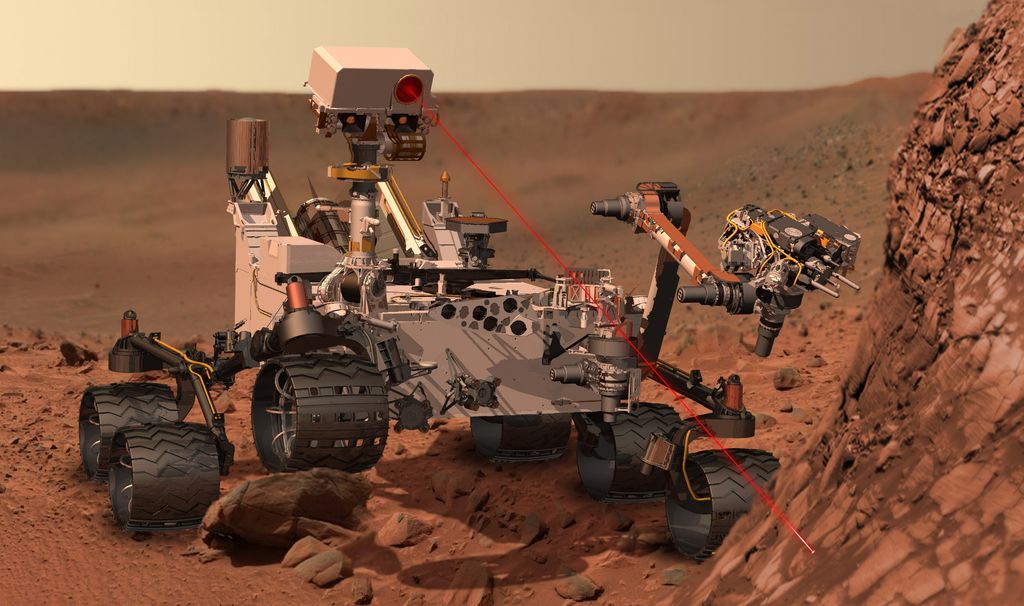Mars rover scientist to share red planet findings
February 28, 2013
Share
 An artist's impression of the Mars rover.
An artist's impression of the Mars rover. The Queen’s community has a unique opportunity to learn about recent findings made by the Mars rover, named ‘Curiousity,’ from Richard Léveillé, a member of the Canadian Space Agency and the Mars Science Laboratory team. On August 5, 2012, the car-sized rover, landed in the Gale Crater on Mars. Since then, it has been exploring the geology and environment of the region.
“It’s an exciting period for this research,” says Ron Peterson (Geology), who invited Dr. Léveillé to give a presentation at Queen’s. “Every day the rover is sending down high resolution images and data from the Martian surface. Dr. Léveillé will be able to provide us with up-to-the-minute knowledge of what’s going on with the mission.”
Queen’s University has a duplicate of one of the instruments currently aboard the Mars rover. Dr. Peterson uses this instrument, called ‘Chemin,’ in his work, to test its behaviour in places on Earth that are thought to have environmental conditions similar to those on Mars. ‘Chemin’ will be used to analyze the dust that was created when the rover drilled a hole into the Martian surface, and will help determine what minerals are present.
“Mars is much like the Earth – it’s got an atmosphere and ice, and the potential for life,” says Dr. Peterson, who says one of the rover mission’s goals is to find an area on the Martian surface thought to have clay. “Clays form in water and were once mud, and if you’re going to find evidence of past life on Mars this is a good place look. There is a chance the rover could see fossil evidence of life on Mars in these dry lake bottoms.”
Dr. Léveillé is one of only 29 scientists working with the science team on the MSL’s current mission to Mars. His research involves investigating how minerals form in natural environments, and how microorganisms interact with their environment to influence mineral formations, either as a result of their physical and chemical properties or their activities.
Richard J. Léveillé’s presentation “Results from the Mars Science Laboratory Mission” takes place on Friday, March 1, 2013 at 1:30pm in Miller Hall, Room 105. More information is available here.